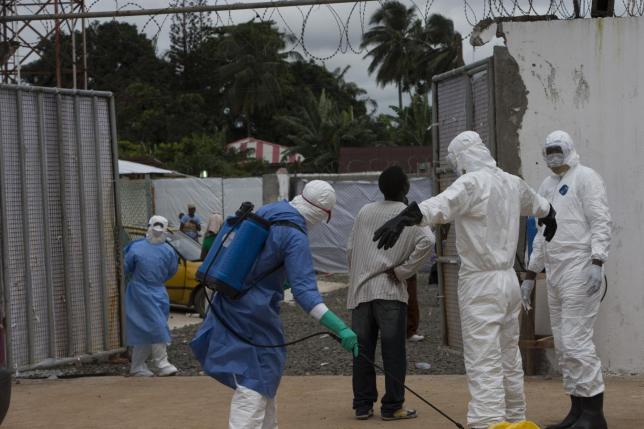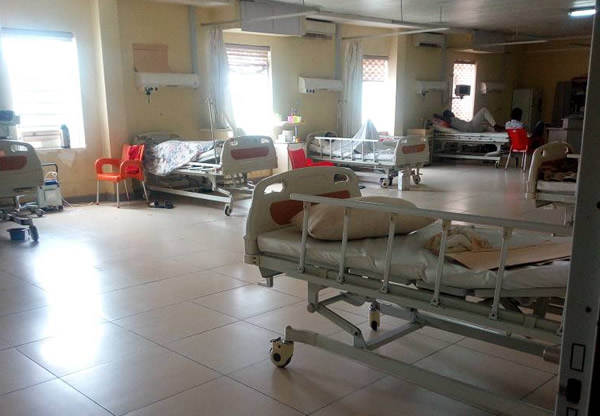The current outbreak of the dreaded Ebola virus disease (EBV) is the twentieth documented major outbreak of the disease on the African continent since its discovery 42 years ago. Over the years, Ebola has resulted in an estimated 13,068 direct fatalities. The disease is a highly infective and acutely lethal viral hemorrhagic fever which presents with flu-like symptoms of fever, headache, fatigue, diarrhea, vomiting and unexplained bleeding.
This presents a conflict in terms of accuracy of diagnosis in a region where common diseases like malaria, cholera, typhoid and meningitis present with similar symptoms. This has resulted in challenged responses to numerous outbreaks of the disease over time. The World Health Organization (WHO), Doctors without Borders (MSF) and the United States Center for Disease Control (CDC) have been directly involved in the diagnosis and monitoring of the disease outbreak on the continent.
The transmission of EBV which occurs through direct contact with body fluids of an infected individual, animal or carcass presents implications of spread through regional trade and travel. This has allowed the epidemic to spread across Western and Central Africa over the years. There have however been gains in the control of the disease, as Nigeria successfully curtailed the virus in 2014 following the West African epidemic that originated from Guinea. Other countries have not been equally successful in managing the disease as evidenced by high fatalities and persistence of the disease within their borders. The Nigerian procedures can therefore serve as a model to be replicated in the control of future outbreaks.
As I arrived Gaborone Botswana last week on a talking tour of the country, was quite impressed by the precautionary measures taken by the health officials of the Southern African country I like to refer to as an oasis in the desert. Ditto for other destinations I transited through.
Advertisement
However, Africa is a highly segmented continent with unequal spread of human resources, wealth and infrastructure. This lends credence to the fact that not all countries have the capacity to independently manage an outbreak of a disease epidemic of public health concern. The major risk of an independent national intervention to such an epidemic as EBV is a rapid spread across the continent due to a combination of regional migration and prevalent informal trade through porous borders and an incubation period of the disease which spans 21 days.
The 2014 West African outbreak of EBV which affected 6 countries and caused an estimated 11,315 case fatalities clearly makes a case for regional cooperation in the management of the disease. Countries tend to close their borders against trade and human movement during epidemics as a primary response towards isolation and control. Whilst this may have health benefits in the short term, it may have long-term socio-economic unintended consequences. A more co-operative model for disease control is therefore needed.
Regional cooperation in the management of an EBV epidemic would deliver the benefit of knowledge sharing between countries with a historical experience of successfully managing the disease outbreak such as Nigeria and others who have never experienced an outbreak. This would serve to halt spread of the epidemic by employing methods successfully applied in the past without a disruption in the normal activities of the country.
Advertisement
The formal set-up of an emergency response system to offer first-line response and emergency preparedness through multilateral cooperation has been proven effective globally. A perfect example is the elimination of polio in the developed world through multilateral cooperation. This spreads the funding burden as well as the attendant benefits out disease elimination. In addition to this, the development of an effective vaccine and maintenance of a cold-chain supply network as a preventive measure would require inputs from all stakeholders, as African countries are typically characterized by poor infrastructure.
Unequal distribution of medical personnel across the continent is also a factor that may require some collaborative efforts (even though to be fair, most of Africa suffers from low density of medical personnel). The question then is; how can countries that have successfully contained EBV in the past provide peer-learnings to those currently struggling with the epidemic.
The centralization of disease control offers further benefits through standardized interventions across the continent. This would define the criteria for screening patients at the borders to avoid disruption of regular activities, proper health education to eliminate myths of false cures such as drinking salt water and define hygiene standards to be maintained for proper prevention.
This approach of multilateral cooperation has been effective in the control of global disease burden and epidemics through agencies such as the WHO which is an arm of the United Nations (UN). Replicating the effectiveness of multilateral cooperation in Africa for issues of concern that could potentially affect the entire continent could be harnessed through existing bodies. The African Union (AU) through its peace and Security Council has taken initiatives on Africa’s public health by declaring ‘Pathogens and epidemics do not respect political boundaries’. There is a need to effectively fund post-EBV surveillance across Africa and define strategies for its management for the benefit of all.
Advertisement
Luckily the response to the current outbreak in DRC which as the time of penning this article has claimed no life thankfully is worthy of commendation. Nigeria has shown the way and must lead the way in form of an African or Continental approach to the scourge. We must have African solutions to African problems.
Views expressed by contributors are strictly personal and not of TheCable.
Add a comment







